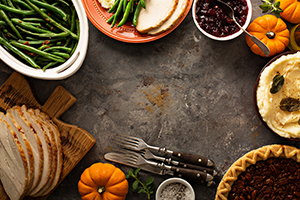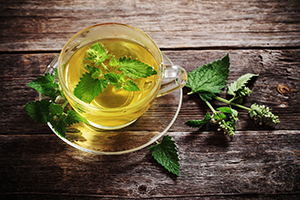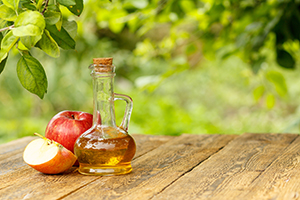For the Gourmands…
 For those who enjoy food, our stomach craves gastronomic pleasure like our heart yearns for love.[1] So, long live the festive end-of-year celebrations where we rediscover our culinary roots, to the delight of our taste buds—and of our souls.
For those who enjoy food, our stomach craves gastronomic pleasure like our heart yearns for love.[1] So, long live the festive end-of-year celebrations where we rediscover our culinary roots, to the delight of our taste buds—and of our souls.
Celebrating is food in itself: A source of pleasure, sharing, and discovery, but also of sweet memories. Our sensory memory, more specifically scent-related, is the most developed, and cultivating our taste and olfactory roots can not only embellish everyone’s daily life, but also shared celebrations. We possess a library of tasty memories that magnifies the experience of eating. I remember the delicious aroma of the sun-drenched fruit pies that Grandma baked for us as an after-school treat, or the savoury flavour of a simmering stew staving off autumn’s first chill. Perfectly balanced bites of Comet (unripened cheese), apple pie, and fresh walnuts perked up the spirit of this young man to help his father split frozen hardwood during the carefree days of our youth. Doesn’t that remind you of some warm memories of your own?
With the first chills that Hora, Greek goddess of winter, blows upon us, there is also a gust of celebrations. Halloween, Thanksgiving, Saint-Nicolas, but also Hannukah, Sukkot, Mawlid, Bodhi, Diwali, and of course Christmas… so many occasions to celebrate our roots, but also to revive the senses and—for all cultures—to tease the pleasure of taste. Taste, closely linked to smell, depends on countless factors that influence the perception of flavours, such as the appearance and colour of food, the physical environment and social atmosphere, or the prevailing mood of the moment.[2][3] The pleasure of eating is therefore a universal recipe, with multiple ingredients that contribute to the alchemy of health. As long as our meals, festive or otherwise, are eaten in moderation, they can be rich in flavour and as colourful as Mother Nature’s landscapes.
The gourmet is a gourmand with self-control.[4] But irresistable temptation during festive times can take you from gourmet to gourmand. Should you succumb, I offer some remedies that can rescue your digestive system, which may be crying out when the festive dinner is eaten..
You can try hot and cold differential thermotherapy, inspired by the Gardelle method, with a cold cloth on your head and a hot-water bottle placed on your liver to stimulate its digestion and detoxification. Bundling up for a brisk walk in the cold, crisp air also works for many.
Another naturopathic method to balance festive eating and health: The ever-more-popular intermittent fasting. Its beneficial effects are observed not only at the level of intestinal health, but also for aging in better health and for longer.[5] Twelve hours or more of deprivation, and fasting metabolic processes kick in, resulting in less fatigue, better appetite, improved body composition, and vitality.
 My favourite soothing herbal tea for calming euphoria—both culinary and nervous—is made with sweet, refreshing lemon balm. This plant from the universal pharmacopoeia was used in ancient Greece to relieve digestive and nervous disorders; taste it, you’ll fall for it!
My favourite soothing herbal tea for calming euphoria—both culinary and nervous—is made with sweet, refreshing lemon balm. This plant from the universal pharmacopoeia was used in ancient Greece to relieve digestive and nervous disorders; taste it, you’ll fall for it!
If there’s another drink from the Natural Medicine Hall of Fame to lighten up post feast afternoons, it’s apple cider vinegar. A few spoonfuls in hot water, with your favourite honey or a natural sweetener like stevia, will work wonders.
 Bitter plants—such as wormwood, known since ancient times to help with difficult digestion—are also simple and effective natural solutions. Wormwood is used in traditional herbal medicine as a stimulant to improve appetite and to relieve symptoms of dyspepsia.
Bitter plants—such as wormwood, known since ancient times to help with difficult digestion—are also simple and effective natural solutions. Wormwood is used in traditional herbal medicine as a stimulant to improve appetite and to relieve symptoms of dyspepsia.
It is said to be carminative. For those who prefer taking a capsule instead of a digestif such as Chartreuse.
For those who have difficulty digesting certain nutrients, some of the most effective nutraceuticals are digestive enzymes. Some formulas contain, for example, dipeptidyl peptidase-4 (DPP-4), which breaks down gluten and relieves possible sensitivities; others provide ox bile, for people who cannot manage fatty meals. Be mindful there are various complete formulas tailored to your needs.
Let’s not forget today's nutraceutical stars, probiotics; these friends with whom we live and without whom we could not live! Diarrhea, constipation, gas, headaches, and more—they take care of all of this so that their host (you) can enjoy the festivities, but also their health, and in return provide them with a microbiome where they thrive!
I will end this brief review of digestion-friendly plants and nutraceuticals with an honorary mention for a staple of herbal medicine, Silybum marianum or milk thistle, which relieves digestive disorders and, above all, protects and regenerates the liver like no other.
The holidays are an opportunity to enjoy epicurean and social pleasures, to cultivate good humour, the pleasure of taste, and the joy of living. These moments spent in good company are positive for mental health, and therefore health in general. Finally, if there is an unusual greedy gap, naturopathy, plants, and nutraceuticals are always there to the rescue!
References
-
d’Houdetot, A. Dix épines pour une fleur, 1853.
-
Auvray, M., and C. Spence. “The multisensory perception of flavor.” Consciousness and Cognition, Vol. 17, No. 3 (2008): 1016–1031.
-
Erickson, R.P. “A study of the science of taste: On the origins and influence of the core ideas.” The Behavioral and Brain Sciences, Vol. 31, No. 1 (2008): 59–105.
-
Blanche, F. Les pensées, répliques et anecdotes, 1972.
-
Sinclair, D., and M. Laplante. Lifespan—Why we age and why we don’t have to. New York: Atria Books, 2019, 432 p.

 Stores
Stores